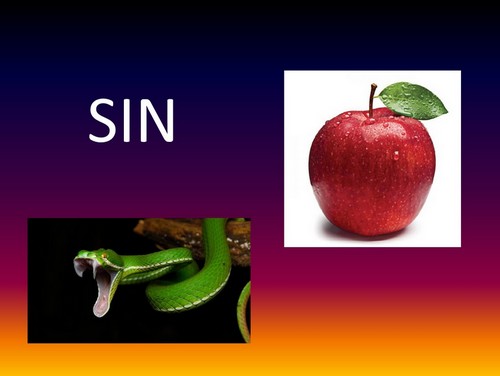                   |
Sin.
Wrongdoing, departure from doing that which is right, the violation of
God's standards (Rom. 3:23), akin to transgressions (Eph. 2:1) and to
debts (Matt. 6:12). The
Greek noun translated "sin"
is hamartía
(266),
a missing of the mark, a violation of God's law.
Further Definition: Commission of sins is coordinate with walking in the darkness, rather than the light (1 John 1:6-7). Sin can be defined as unrighteousness (1 John 5:17). Sin is a corrupting principle which dwells within mankind (Rom. 7:17, 20). Whatever is not of faith is sin (Rom. 14:23). Jesus is the one person who has never committed sin (2 Cor. 5:21; Heb. 4:15; 7:26; 1 Pet. 2:2). Sin includes acts of omission as well as acts of commission (James 4:17). The practice of sin is the practice of lawlessness (1 John 3:4). The Origin and Consequence of Sin: Sin entered the world through one man, Adam, and through sin, death, which spread to all men (Rom. 5:12). The result of sin is death (Rom. 6:16, 23; Eph. 2:1). The sting of death is sin, and the power of sin is the law (1 Cor. 15:56). When lust has conceived, it gives birth to sin; and when sin is accomplished, it brings forth death (James 1:15). He who practices sin is of the devil (1 John 3:8). Forgiveness: The Holy Spirit convicts the world of sin, of righteousness, and of judgment (John 16:8). Jesus taught us to ask God to forgive us our sins (Luke 11:4). God desires universal repentance for the forgiveness of sins (Luke 24:47; Acts 2:38). Jesus is the Lamb of God who takes away the sin of the world (John 1:29). Forgiveness of sins is also termed "redemption" (Col. 1:14). Jesus made purification of sins (Heb. 1:3), and made propitiation for sins (Heb. 2:17; 1 John 2:2; 4:10; Rev. 1:5). Jesus offered one sacrifice for sins for all time and now sits at God's right hand (Heb. 10:12; 1 Pet. 2:24). Further Study: See articles on the subject of sin, Hamartiology.
Updated February 19, 2022
|
|||

